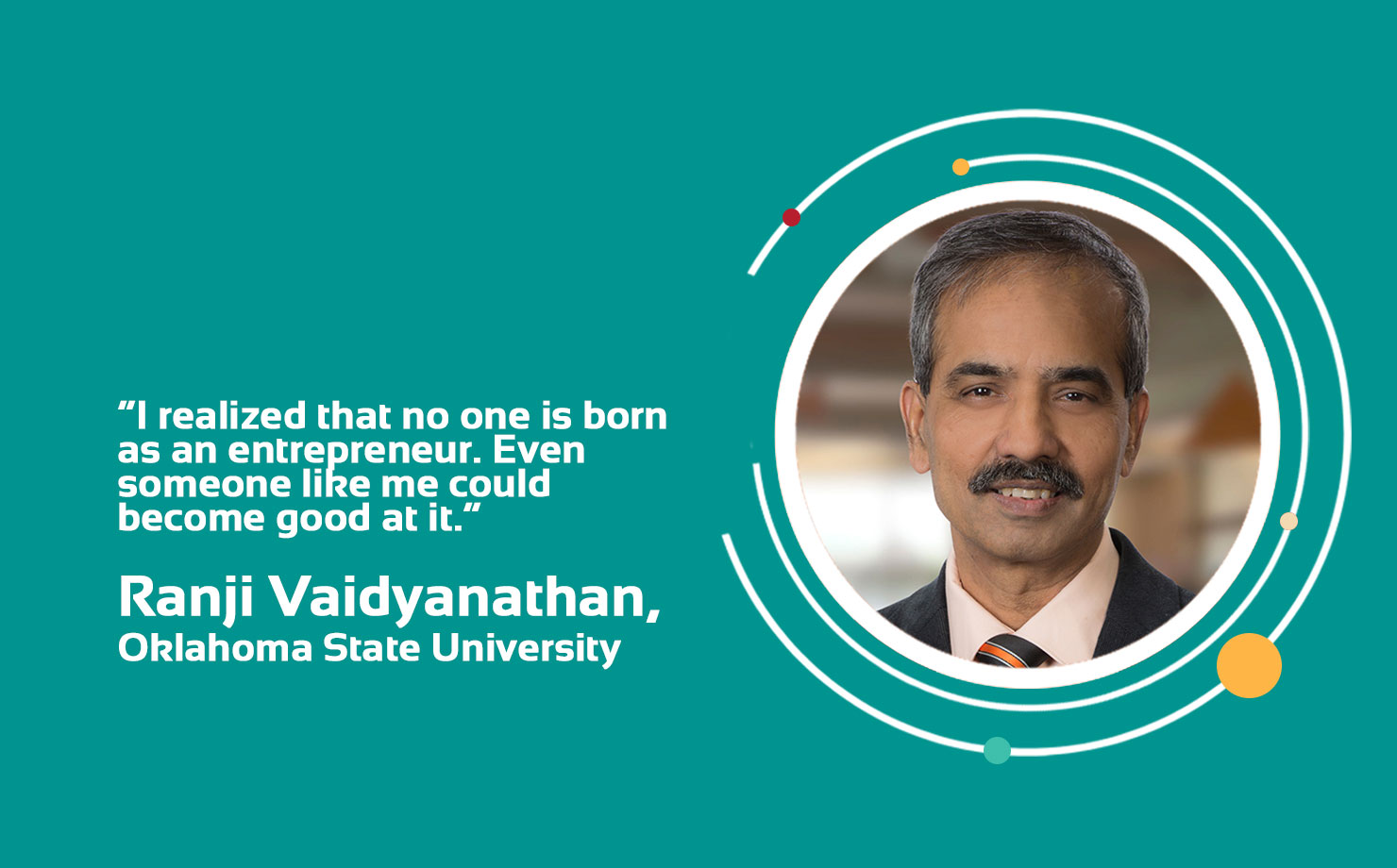
We continue our series highlighting educators within the VentureWell network who are doing good work—faculty members who are catalyzing change in higher education and inspiring students to impact the world through invention. This month’s faculty spotlight is Ranji Vaidyanathan, Professor of Materials Science and Engineering at Oklahoma State University. Vaidyanathan has participated in several VentureWell programs. He’s served as a principal investigator for several student E-Teams and I-Corps teams. He’s also a principal investigator for a VentureWell Faculty Grant to create a new graduate course that teaches STEM students to understand issues with developing sustainable materials in their respective fields, and prepares them to create new businesses by recycling materials.
How did you get interested in teaching entrepreneurship?
Before I came to Oklahoma State, I used to work for a small company in Arizona where we developed products from idea to commercial scale, just like entrepreneurs. I enjoyed the interplay between the sales, marketing, and technical product development—and how quickly one had to respond to customer needs in order to survive. I learned that in the innovation world, it is either “Do lunch” or “Be lunch”. I also realized that no one is born as an entrepreneur. Even someone like me could become good at it.
When I came to Oklahoma State, I quickly found that there was no one in the engineering school who had entrepreneurial experience. I made it my own domain. I also had several faculty in the school of entrepreneurship who were willing to work with me. I found that engineering students were hungry for this knowledge. I also found that I could motivate students to work in an interdisciplinary manner. The more I became successful with a couple of student companies, more engineering students asked me for my help. One of my first student teams won 2nd place at the Rice Business Plan competition. Some student teams even won SBIR and STTR grants and have become successful commercially.
What is your favorite thing about teaching?
It excites me to teach the application of theories. My engineering students come back and tell me what I taught them or did for them has made a huge difference in their lives. Money can never replace the impact that you have made in a student’s life.
Where would you like to see the field of entrepreneurship in five years?
I would like to see entrepreneurship as an integral part of engineering education, particularly as a means of teaching students what the knowledge from a course truly means in the real world. The more we are able to connect real-life engineering applications and the possibilities to students, the more we will develop true entrepreneurs who can contribute to products, economic development, and job creation.
What are the challenges you’re tackling in your work today?
There are a number of faculty who have a business as usual approach to teaching. When these faculty have tenure, it is not easy to convince them that they need to change and introduce entrepreneurship to their students. My biggest challenge is to encourage more faculty to take risks by letting engineering students take the lead in creating new products based on their ideas and innovations.
What podcasts on entrepreneurship and innovation have you been listening to?
I have been listening to a podcast out of WGBH in Boston called Innovation Hub. They cover a broad range of topics. I recently learned how the Defense Advanced Research Projects Agency (DARPA) created Agent Orange, self-driving cars, and the internet. I also listened to a report about how to build an inclusive innovation economy.
What’s your most useful classroom activity or assignment?
When entrepreneurs go to pitch their ideas to potential investors, it is important that they have some success to share. In all my classes, I have students demonstrate the proof of concept of their ideas to show the potential of their idea. I talk with each student one-on-one and evaluate if they can take their idea forward, and how they might find the funding to do so.
Learn more about our Faculty Grant Program here.